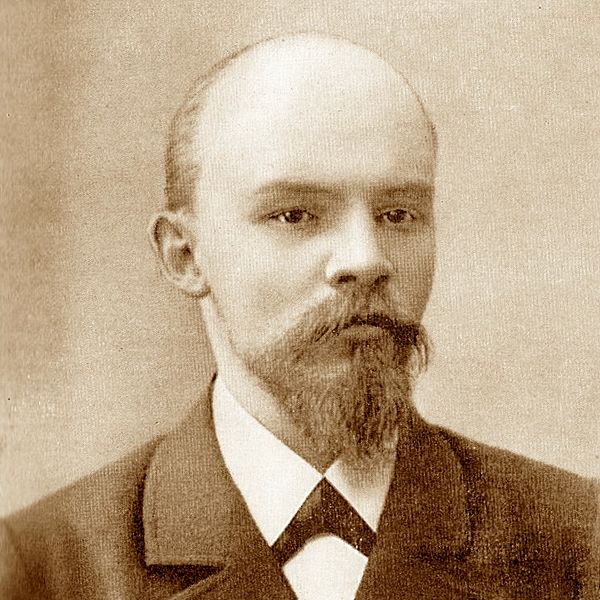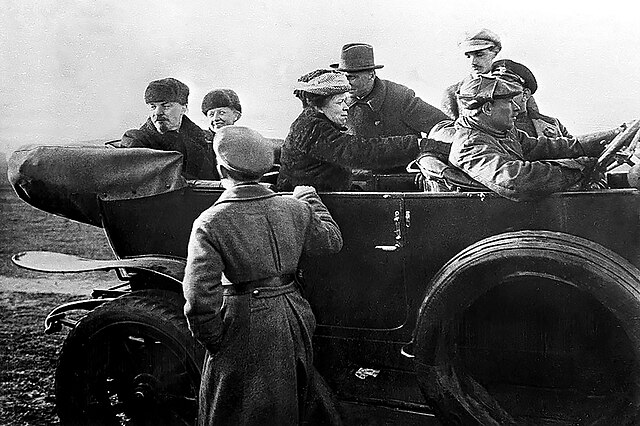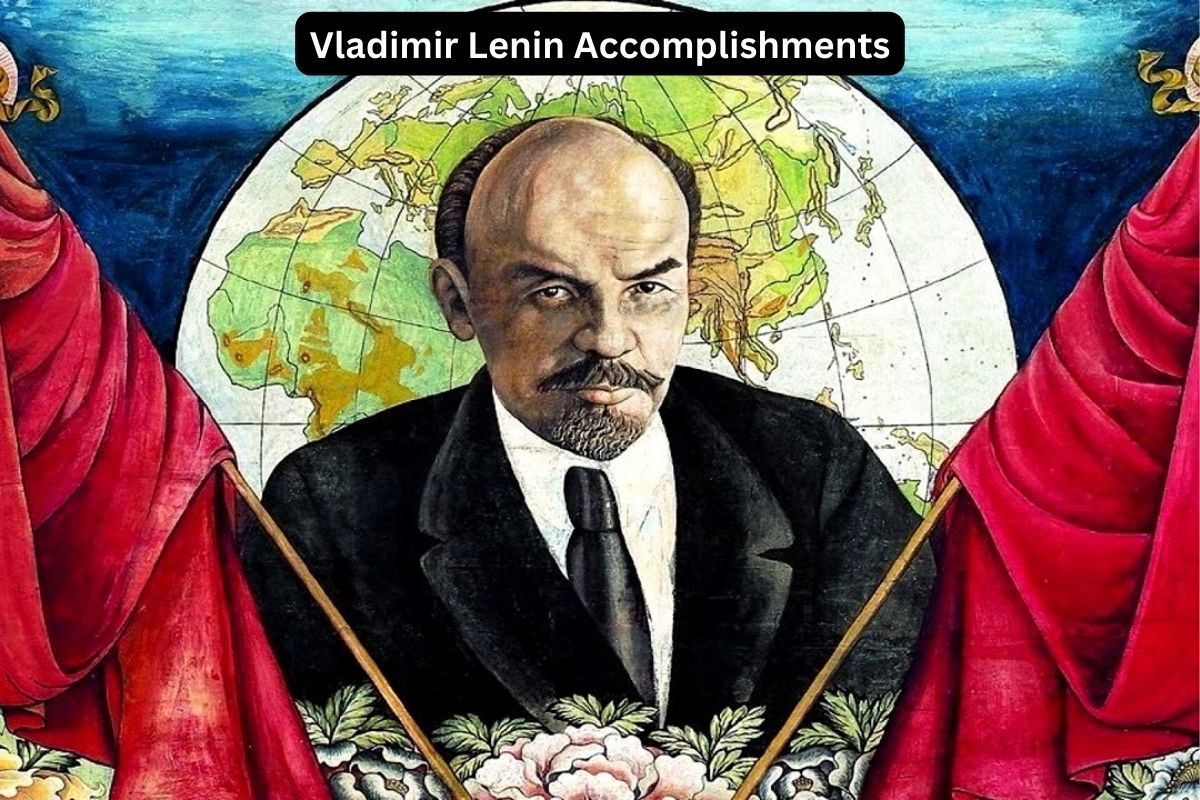In the annals of history, few figures have left as profound a mark on the course of the 20th century as Vladimir Lenin.
As the leader of the Bolshevik Party and the architect of the October Revolution, Lenin spearheaded the establishment of the world’s first socialist state, forever altering the political landscape of Russia and the world.
This article delves into the life and legacy of Lenin, exploring his key accomplishments and enduring impact on revolutionary theory, governance, and international relations.
From his leadership during the tumultuous days of the Russian Revolution to the implementation of radical socio-economic policies, Lenin’s imprint on history remains indelible, shaping the trajectory of communism and global geopolitics for decades to come.
Accomplishments of Vladimir Lenin
1. Leadership of the Bolshevik Revolution
Vladimir Lenin played a pivotal role in leading the Bolshevik Party in the October Revolution of 1917. This revolution, also known as the Bolshevik Revolution, resulted in the overthrow of the provisional government and the establishment of Bolshevik control in Russia.
Also Read: Facts About Vladimir Lenin
Lenin’s strategic vision, organizational skills, and revolutionary fervor were instrumental in orchestrating this momentous event, which laid the groundwork for the creation of the world’s first socialist state.

2. Establishment of the Soviet Union
Building on the success of the October Revolution, Lenin worked to consolidate Bolshevik power and expand its influence throughout Russia.
In 1922, under Lenin’s leadership, the Russian Soviet Federative Socialist Republic (RSFSR) joined with other Soviet republics to form the Union of Soviet Socialist Republics (USSR), commonly known as the Soviet Union.
This consolidation of power marked a significant geopolitical shift, as the Soviet Union emerged as a major global player, promoting communism and challenging capitalist hegemony.
3. Nationalization of Industry
One of Lenin’s key objectives upon assuming power was to transform Russia’s economy from a capitalist system to a socialist one. To achieve this goal, Lenin’s government embarked on a program of nationalization, whereby key industries, banks, and resources were brought under state control.
Also Read: Timeline of Vladimir Lenin
This process involved seizing control of factories, mines, and other means of production from private owners and placing them under the authority of the state.
By nationalizing industry, Lenin aimed to centralize economic decision-making, eliminate exploitation of the working class, and lay the foundation for a planned economy based on socialist principles.
4. Creation of the Cheka
In December 1917, shortly after the Bolshevik Revolution, Vladimir Lenin established the Cheka, also known as the All-Russian Extraordinary Commission for Combating Counter-Revolution and Sabotage.
The Cheka served as the first Soviet secret police and intelligence agency. Its primary purpose was to identify, suppress, and eliminate perceived threats to the Bolshevik regime, including counter-revolutionaries, saboteurs, and political dissidents.
Under Lenin’s direction, the Cheka conducted widespread surveillance, carried out arrests, interrogations, and executions, and played a crucial role in maintaining internal security during a tumultuous period of civil war and political upheaval.

5. Introduction of the New Economic Policy (NEP)
Following the devastation of the Russian Civil War and the economic hardships it brought, Lenin recognized the need for a pragmatic approach to economic management.
In 1921, he introduced the New Economic Policy (NEP), which represented a temporary retreat from strict socialist policies in favor of limited capitalism and market-oriented reforms. Under the NEP, small-scale private enterprise, trade, and agriculture were allowed to operate alongside state-owned industries and collective farms.
This policy aimed to stimulate economic recovery, encourage entrepreneurial activity, and alleviate widespread poverty and famine. While controversial within the Bolshevik Party, the NEP succeeded in stabilizing the economy and laying the groundwork for later industrialization efforts under Lenin’s successors.
6. Formation of the Communist International (Comintern)
In March 1919, Vladimir Lenin convened the First Congress of the Communist International, also known as the Comintern or Third International, in Moscow. The Comintern was established as an international association of communist parties dedicated to promoting world revolution and advancing the cause of communism.
Under Lenin’s leadership, the Comintern provided ideological guidance, financial support, and organizational assistance to communist movements and parties across the globe. It played a central role in coordinating international solidarity among revolutionary forces, disseminating Marxist-Leninist ideology, and challenging capitalist imperialism.
While the Comintern’s influence declined following Lenin’s death and its eventual dissolution in 1943, it left a lasting legacy as a symbol of international revolutionary struggle and socialist solidarity.

7. Implementation of Land Reform
Vladimir Lenin’s government implemented significant land reforms as part of its efforts to address long-standing grievances among the Russian peasantry. The Bolsheviks redistributed land from the nobility, wealthy landowners, and church estates to the rural peasantry.
This redistribution aimed to fulfill the Bolsheviks’ promise of “land, peace, and bread” to the peasants, who had long sought access to land and freedom from feudal obligations.
By redistributing land, Lenin sought to gain the support of the peasantry for the Bolshevik regime, while also undermining the power base of the old aristocratic and bourgeois classes.
8. Promotion of Women’s Rights
Under Lenin’s leadership, the Soviet government implemented policies aimed at advancing women’s rights and promoting gender equality.
These policies included granting women equal rights in marriage and divorce, abolishing legal distinctions based on gender, promoting women’s education and workforce participation, and legalizing abortion.
Lenin viewed the emancipation of women as integral to the broader project of building socialism and transforming social relations. By enacting these reforms, Lenin sought to empower women, enable their full participation in economic and political life, and challenge traditional patriarchal norms and institutions.
9. Establishment of the Red Army
In the wake of the October Revolution and the ensuing civil war, Vladimir Lenin recognized the need to establish a disciplined and centralized military force to defend the fledgling Bolshevik state and suppress internal and external opposition.
In 1918, Lenin’s government created the Red Army as the armed forces of the Soviet state. Composed primarily of workers, peasants, and revolutionary volunteers, the Red Army played a crucial role in defeating counter-revolutionary forces, foreign interventionists, and White Army factions during the Russian Civil War.
Under Lenin’s leadership, the Red Army emerged as a potent symbol of proletarian power and revolutionary defense, laying the foundation for the Soviet Union’s future military prowess.
10. Development of Leninist Ideology
Vladimir Lenin made significant contributions to Marxist theory, which came to be known as Leninism. Building on the ideas of Karl Marx and Friedrich Engels, Lenin developed a distinct revolutionary doctrine that emphasized the necessity of a vanguard party to lead the working class in overthrowing capitalism and establishing socialism.
Leninist ideology advocated for the creation of a socialist state to transition society towards communism, the necessity of proletarian dictatorship to suppress counter-revolutionary forces, and the importance of international solidarity and anti-imperialist struggle.
Lenin’s ideas became foundational to communist movements worldwide, shaping the course of 20th-century revolutionary politics and inspiring generations of socialist activists and thinkers.
